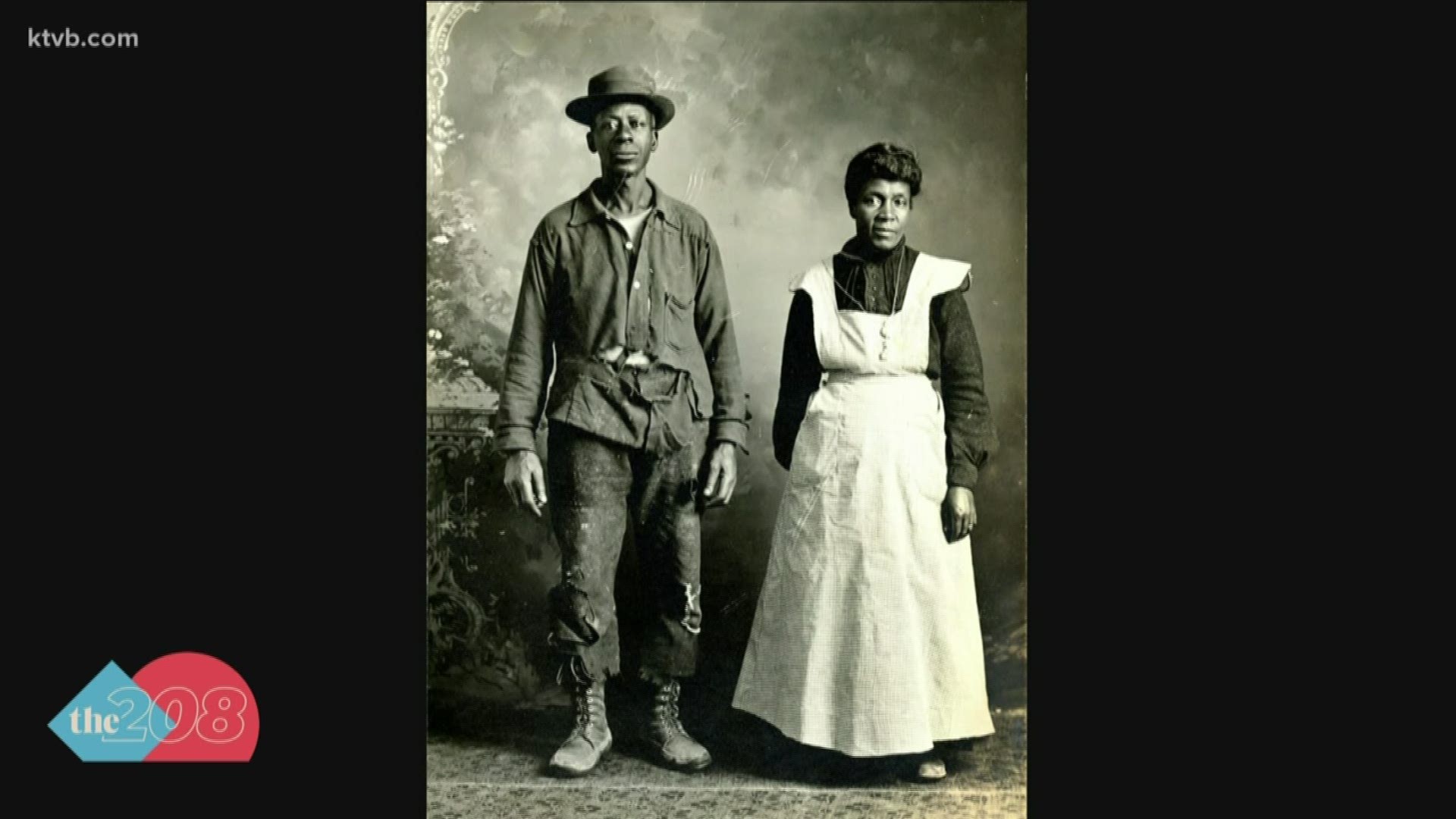LATAH COUNTY, Idaho — Idaho's historical Black experience comes to us in small doses.
We haven't had a lot of Black people in Idaho dating back to it's beginning or even before it's beginning, but those we have had have been rather remarkable.
Elvina Moulton, a former slave in Kentucky, moved to Boise in 1867 and became one of the city's first black residents.
Moulton helped start the Boise Presbyterian Church in 1878.
In North Idaho, Joe and Lou Wells moved into what's now known as Deary in 1889.
The Well's came with Crom and Frank Wells, brothers from the family that used to own Joe, who was born into slavery in 1858 in North Carolina.
Those bonds weren't exactly broken cleanly by emancipation.
Joe and Lou were homesteaders on land that would eventually become the town of Deary in Latah County.
"You know there's a pretty often cited joke that Joe Wells would tell that he was the whitest man in the territory because everyone else was Swedes," Dulce Kersting-Lark, the executive director of the Latah County Historical Society said.
The turn-of-the-century timber town rarely rose above hundreds of people, of which Joe and Lou were the only Black members.
"These two individuals, Joe and Lou Wells, really built themselves a respectable and honest life in pretty rough country," Kersting-Lark said. "It was not easy labor. They raised three kids and became beloved members of their community despite odds, despite facing criticism and all sorts of things."
There, they ran a half-way house and Joe helped build the local schoolhouse.
It was that hard work and determination that helped them fit in as one of Deary's founding families.
"There was certainly some affinity between the Wells family and the larger community."
"The fact that the Wells family was not at the tail end of a lot of violent reaction to their Blackness I think has something to do with the fact that they were one of the only families and so they were constantly being talking about as is they were as White as the rest of us. They were just kind of folded in. They weren't just accepted as different and good, it was that we've made them less other."
Deary officially became a town on September 24, 1907.
Join 'The 208' conversation:
- Text us at (208) 321-5614
- E-mail us at the208@ktvb.com
- Join our The 208 Facebook group: https://www.facebook.com/groups/the208KTVB/
- Follow us on Twitter: @the208KTVB or tweet #the208 and #SoIdaho
- Follow us on Instagram: @the208KTVB
- Bookmark our landing page: /the-208
- And we also turn each episode into a podcast on Spotify or Podbeam
- Still reading this list? We're on YouTube, too:

